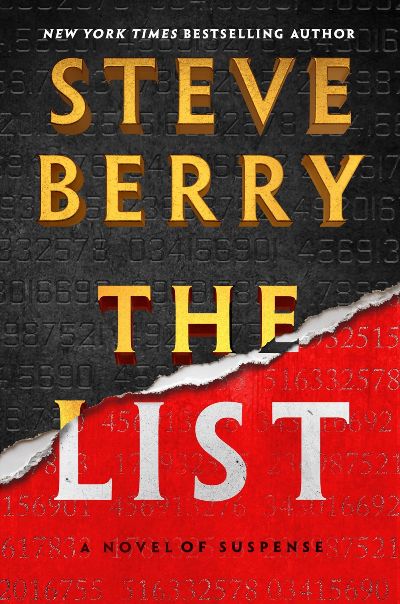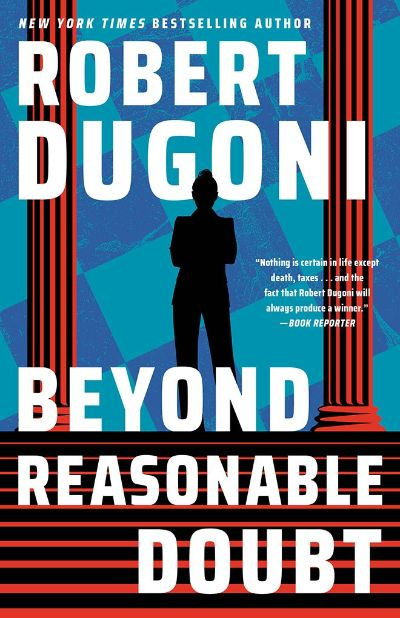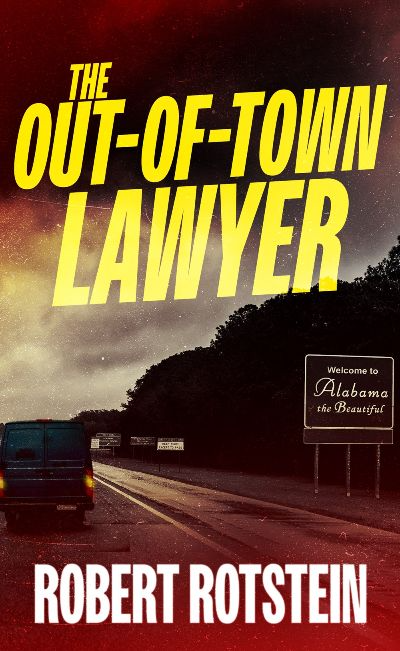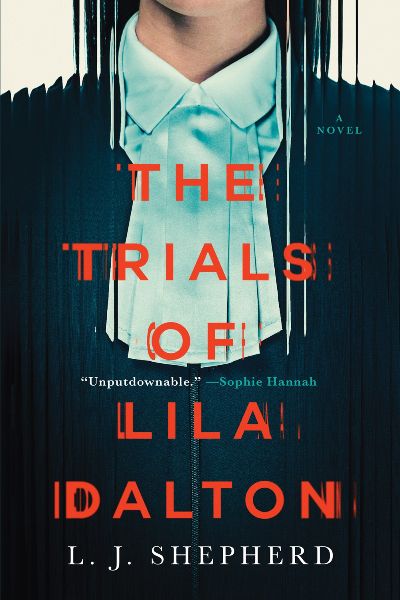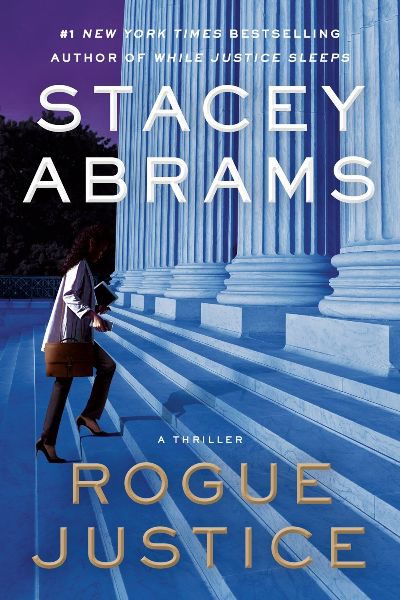Berry delivers a novel unlike anything he’s ever done before. Rather than exploring history, this one takes pieces of John Grisham’s The Firm and mixes them with the business aspects of a Joseph Finder novel and storytelling elements from David Baldacci. Brent Walker left his hometown and the woman he loved ten years ago, and now he’s come back to help his sick mom. He takes a job at the small-town paper mill in a legal role beneath his level of expertise to oversee their negotiations with the local union. The company’s management is not trustworthy, and more than doctoring the financials, they have created a list, and the purpose of the names on it is beyond reprehensible. Brent and his lifelong friend and co-worker, Hank, are given a series of what appear to be random numbers, but research reveals to them the horrendous nature of what the numbers mean. They are not random at all, but to say anything more would spoil the fun. Someone given the pages without knowing the author’s identity would never identify Berry as this book’s writer, and his going outside his comfort zone to resurrect one of his early, desk-drawer novels is beneficial to him, his fans, and thriller readers alike. The List would be a perfect story to be turned into an Alfred Hitchcock film, and this should only add to Berry’s fanbase.
Legal
How do you represent a defendant in a court of law when that person is someone you have not trusted since you were a kid? That is Keera Duggan’s dilemma in this terrific follow-up to Her Deadly Game. Keera and Jenna Bernstein were rivals as children, and Keera never liked Jenna, though she tried several times. Jenna would always manipulate Keera and even get her in trouble merely to satisfy her ego. Later, Keera’s dad got Jenna cleared of a murder charge and now she is CEO of a biotech company. Circumstantial evidence has Jenna in hot water again, and only Keera can prove her innocence this time. Dugoni is one of the best in the legal-thriller world, and he finds compelling ways to tell stories that involve injustice. Keera has her work cut out for her because she might believe Jenna is innocent of this crime, but does that make her not guilty of others?
This legal thriller’s title is reminiscent of The Lincoln Lawyer, and Rotstein’s ace storytelling will also bring vintage Grisham to mind. The lead character, Elvis Henderson, even lives out of a vehicle—the camper van that he parks outside the run-down motel where his coworker, Margaret Booth, stays while they defend the case that has Alabama rapt. Destiny Grace Harper is accused of murdering her twin babies, but not by any action she took. She didn’t save them because her strict Christian church doesn’t believe in medical treatment. When her babies were discovered to have a lethal condition in utero, one that could be reversed with a simple surgery, Destiny Grace ran away rather than succumb to the court-ordered procedure. Now Elvis is up against pro-life locals, his client’s refusal to cooperate in her own defense, and a judge that’s just as stubborn. Both his wily arguments and the prosecutors vigorous rebuttals are spellbinding enough, but the story also digs into the rot that’s sometimes behind nice-family facades and small-town politeness. With James Patterson a former co-author of Rotstein’s (in The Family Lawyer), this has a ready-made audience, but newcomers to Rotstein will soon want more too.
This brilliantly disorienting debut takes place on Assumption Island, a cold, rocky British outpost in the north Atlantic. Lila Dalton finds herself in an island courtroom being addressed by an impatient judge who clearly expects her to argue for her client. Lila has no idea how she got to this courtroom, how to be a barrister, what the case is…she doesn’t know anything, including who the stranger in the mirror is. Things take a turn for the (even) worse when she gets anonymous notes telling her that she’d better win acquittal for the murderer she’s representing if she ever wants to see her daughter again (that would be the daughter she didn’t know she had). The various characters working for and against Lila (we’re often unsure which direction a character is leaning, adding to the dark, compelling tale) are well drawn, with each adding complications and drama. Spare but gripping dialog propels the strange story to an appropriately dizzying conclusion. For fans of Hervé Le Tellier’s The Anomaly.
Connelly’s stellar effort, which brings together defense attorney Mickey Haller, the Lincoln Lawyer; and retired LAPD Detective Harry Bosch, explores a case of an incarcerated woman claiming innocence. She was coerced into a no-contest plea of a lesser sentence of manslaughter by her sleazy attorney, who told her if she didn’t agree to this deal, she would face life in prison for killing her sheriff’s-deputy husband. Every attempt by Haller and Bosch to find answers is met with either disdain or tainted evidence and testimonies. Connelly is a master of taking a straightforward case and compellingly revealing the details while throwing in a few twists and turns. Laws are questioned and Bosch and Haller soon determine they are David and this Goliath is too strong for them. Whether you are a fan of the books or the Netflix and Amazon Prime series, this latest entry is another gripping winner from the master of crime fiction, and with the great popularity of the TV series, expect huge interest in this title.
How does Stacey Abrams do it all? Last year, she ran for Governor of Georgia while maintaining her voting-rights activism and apparently writing this book. The second in the Avery Keene duology (after While Justice Sleeps) sees Supreme Court clerk Keene back in the lawyer/amateur detective seat. As the book opens, she’s being grilled by Congress about allegations she’s brought to light regarding corruption and crimes by disgraced President Brandon Stokes. Readers won’t help but imagine him as having a certain orange hue, and it seems no coincidence that his initials are BS. Other parts of the book seem taken from current headlines, too, enriching an exciting tale of blackmailing of federal judges and imminent nationwide technological sabotage that seems all too possible. At the heart of it are Keene’s smarts, eidetic memory, and integrity—this is a woman who’s underestimated at her foes’ peril, and there’s plenty of peril. Details of the inner workings of Washington, DC are strewn throughout the work and raise the interest level even further. For a mini-course in political intrigue, try this and James Comey’s Central Park West, which is out later in May.
Keera Duggan has had her fill of being pushed around. She had to leave her promising job in the Seattle prosecutor’s office because her one-time romantic interest couldn’t take no for an answer She’s now reluctantly taken her legal skills to Patrick Duggan & Associates, a move she swore she’d never make. Patrick is her alcoholic father and the associates are Keera and her long-suffering sisters.
As the newbie, Keera’s paying her dues on small-time cases until the last straw: her father is too drunk for court and she must step in. So, when a big case comes up on a night when she’s on phone duty, she grabs it and verbally elbows her family out of the way the next day. An ultra-rich money manager is accused of killing his wife, a disabled woman (she uses a wheelchair and is unfortunately described throughout the book as “confined” to it). She couldn’t have killed herself, even though she’s found at home alone, shot in the head, with a gun beside her. The only possibility seems a SODDI defense (some other dude did it).
Then Keera, a skilled chess player, gets an email from a stranger warning her that, “You’re in the game of your life, so play like your life depends on it.” As well as following an entire game of chess, move by move, that Keera plays with an online opponent, readers will eagerly follow the wonderfully obstinate Keera as she refuses to let up on this case even as the obstacles, puzzles, and twists keep coming. Dugoni’s afterword explains that legal thrillers are his roots, and with the intricate plotting and winning characterization here, readers will be glad he returned to them.
Celebrity books are hit and miss. It often seems like they hired a ghost writer, and worse again is when you wonder why they didn’t. But this crime-fiction debut, the first in a series by former FBI Director and October-surprise specialist Comey, is firmly in the hit category. Comey draws on his decades of experience to show the hectic activity behind the big-name trials that appear in New York State Supreme Court, the imposing steps of which we’ve all seen on the news. Two interrelated cases, and two teams of lawyers and investigators, are his focus: the trial for the murder of a former philandering Governor of New York, Tony Burke, and another murder case, one that features possible mafia violence and intimidation. A feeling of danger is introduced by Comey, a long-time mob prosecutor, with the lawyers maintaining a psychological operation as they massage the egos of mafiosi to encourage them to cooperate while keeping them alive. We also get a sense of a clock ticking ever more ominously as a fair outcome in one trial depends on the other one finishing first, with the justice system anything but swift. The layers of New York society are also well displayed here, from the ”fucking rich people” loathed by Burke’s long-suffering Central Park West doorman to striving single-mom Assistant U.S. Attorney Nora Carleton—more of her in the next book, please!–whose Jersey home is far in every way from the Upper West Side. An engrossing look at a longtime prosecutor’s world and its pain and triumphs.
The 48th novel from the biggest name in legal thrillers is a departure for him, with the book taking place over generations and lots more of it outside the courtroom than usual, all to great effect. The boys of the title are two sets of fathers and sons on very different sides of the law in Biloxi, Mississippi. Their saga starts with a look at the founding of the hardscrabble city by Croatian fishermen. By the time we reach the 1950s and meet Keith Rudy and Hugh Malco, the sons in question, the city has thriving clubs with prostitution, gambling, and all the violence and intimidation that go alongside. Hugh’s father, Lance, is the head of organized crime in Biloxi, able to grow his awful interests with the help of corrupt police. Fighting against him and his ilk is Keith’s father, Jesse, a lawyer whose education and climb we’ve witnessed and who dreams of becoming DA and cleaning up his city for good. As the two sides becomen entrenched, Grisham takes us on side trips that follow the various small-time and not-so-small-time criminals whose work feeds the Rudy-Malco divide, with the story building toward an epic legal showdown that pits honor against evil. There are no major female characters here, and the book may not pass the Bechdel test, but readers who can overlook that will be treated to vintage Grisham: a great story, characters to cheer for and loathe, and gripping legal drama. Fans of Jeffrey Archer as well as of Grisham will love this.
Sophocles’ play Antigone, written in 441 BCE, is here pulled into modernity by Burt, a consultant for the United States Holocaust Memorial Museum. The ancient play sees brothers instigate a civil war, and one of their daughters, Antigone, defies her uncle and puts her brother first. So it is in The Dig, which opens amid a civil war, this time in 1993 Sarajevo, Bosnia. Andela, age three, and her brother Mujo, six, are found by American construction-worker brothers in the rubble of a destroyed building, their dead mother nearby. Their Antigone takes place in Thebes, Minnesota, where the children, now called Antonia and Paul, have a “typical American upbringing, blah, blah, no drama,” after being adopted by Eddie King, one of the brothers. Except it’s not really drama free. The blond and hearty residents of Thebes are not ready for the dark-haired, reticent Antonia and Paul, and Eddie dies of an overdose when he can’t handle the new responsibility. What the King family decides for the town is taken as local law, but Antonia defies her Uncle Christopher, graduating from law school and decidedly not working for her family. Paul rebels even more, protesting the Kings’ development of a new shopping area that displaces his Somali immigrant friends and then disappearing. Finding him and getting to the bottom of their pasts, both in Bosnia and more recently, will draw Antonia into a storm of lies and corruption and a fierce battle for control of her life. Feelings when ambition and family collide are no different today than in 411 BCE, and the resulting spectacle is no less captivating.
- 1
- 2

